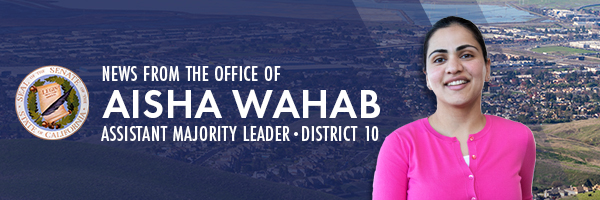
Bill would let therapists and social workers decide when to confine mentally ill Californians
A mother’s hug was on California Sen. Aisha Wahab’s mind when she authored a controversial state bill that would allow social workers and therapists to decide when to confine someone against their will so they can be treated for mental illness.
Wahab was once a member of the Hayward City Council, and she’d just voted to create a local program that would send medical and mental health professionals to certain 911 calls, in an effort to reduce police officers interacting as much with mentally ill people.
After the vote, a woman came up and embraced her. The woman, Wahab said, was the mother of a large Black man with autism, who often wore headphones. He doesn’t speak and gets agitated in tense situations. The mother told Wahab she was terrified of her son getting hurt or killed if police – instead of mental health professionals – were ever called to detain her son.
“The problem here,” Wahab told CalMatters in an interview, “is that the individuals that are actually trained in this science, in this profession, in this industry, are not empowered enough to make the best decision for the people they work with the most.”
That’s the rationale behind Wahab’s Senate Bill 402, which passed out of the 40-member Senate Monday.
[...]
Wahab says community organizations that work with marginalized groups and immigrant populations increasingly have mental health professionals on staff who interact with mentally ill people and their families, so they know best when someone is starting to spiral out of control. They should be able to decide if someone needs to be placed into mandatory care – and without involving police as much in the process, said Wahab, an Afghan immigrant and a former board member of the non-profit Afghan Coalition.
[...]
The hope is that if a therapist, a case worker or a social worker whom a mentally ill person trusts institutes the hold, it can make the process less confrontational – and less dangerous – without needing to call police away from other duties, Wahab said.